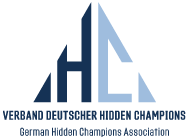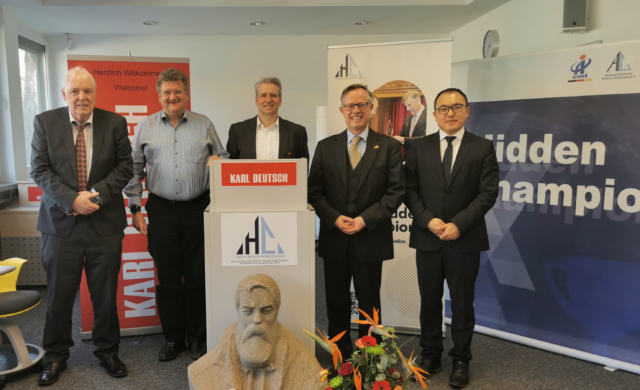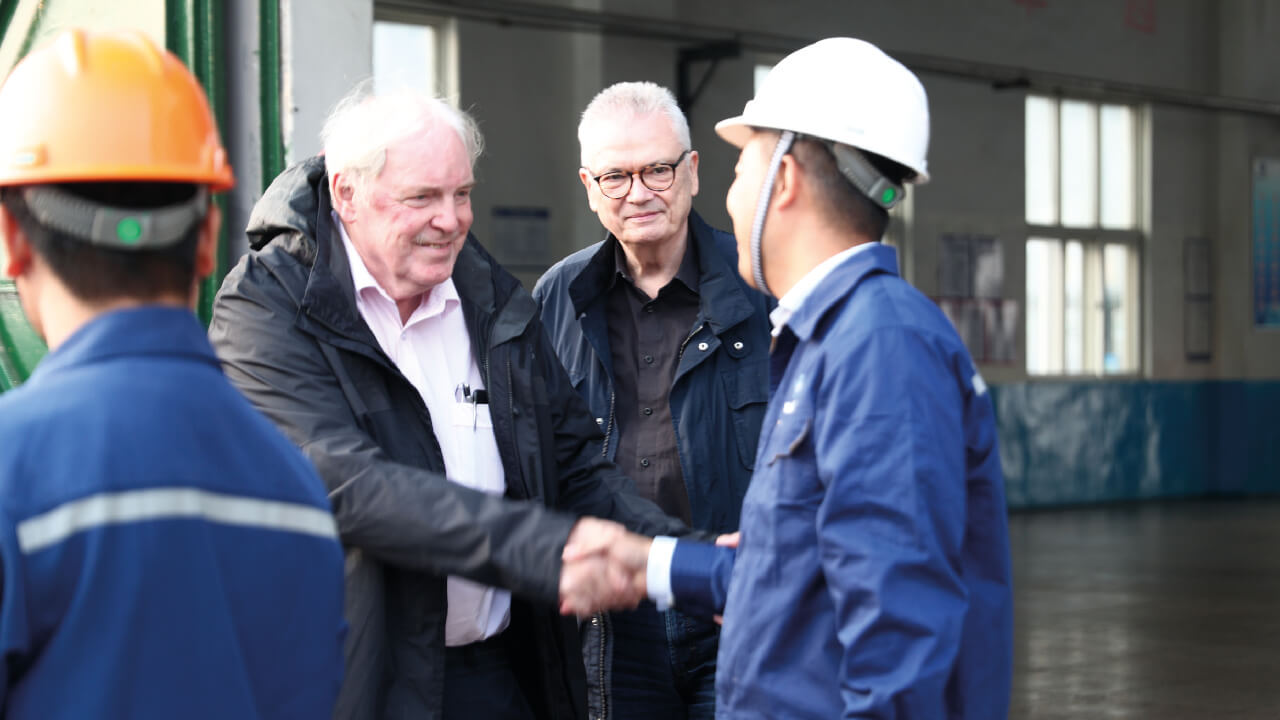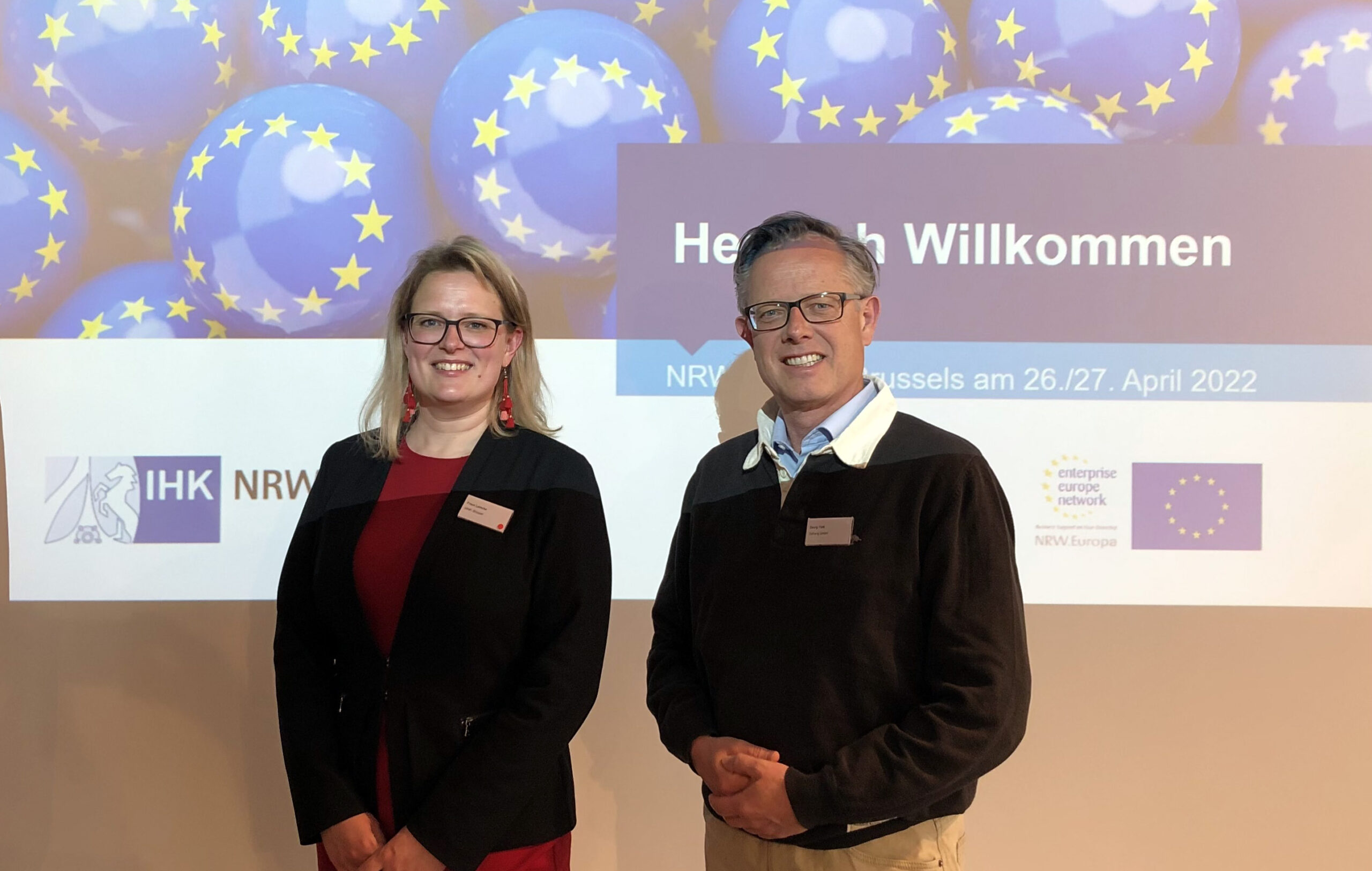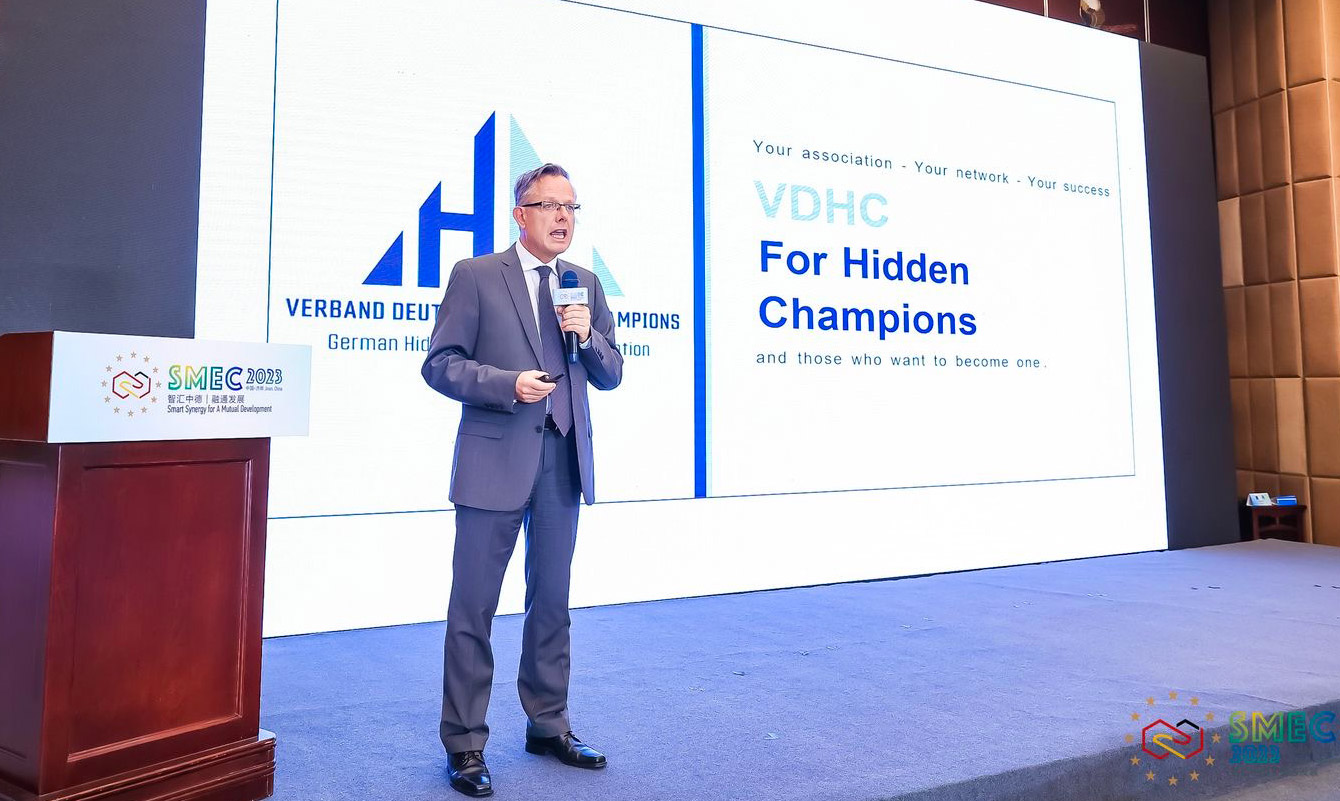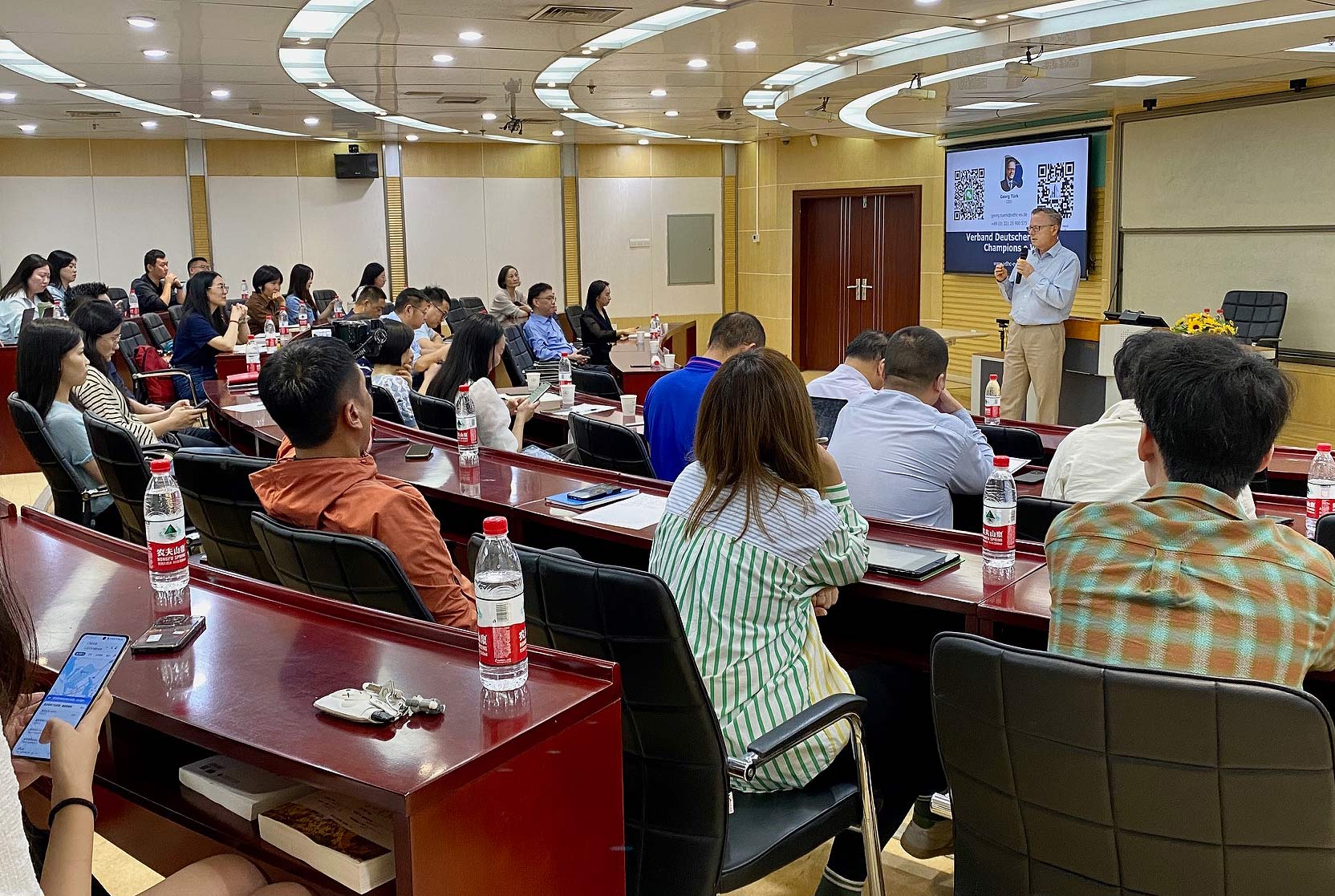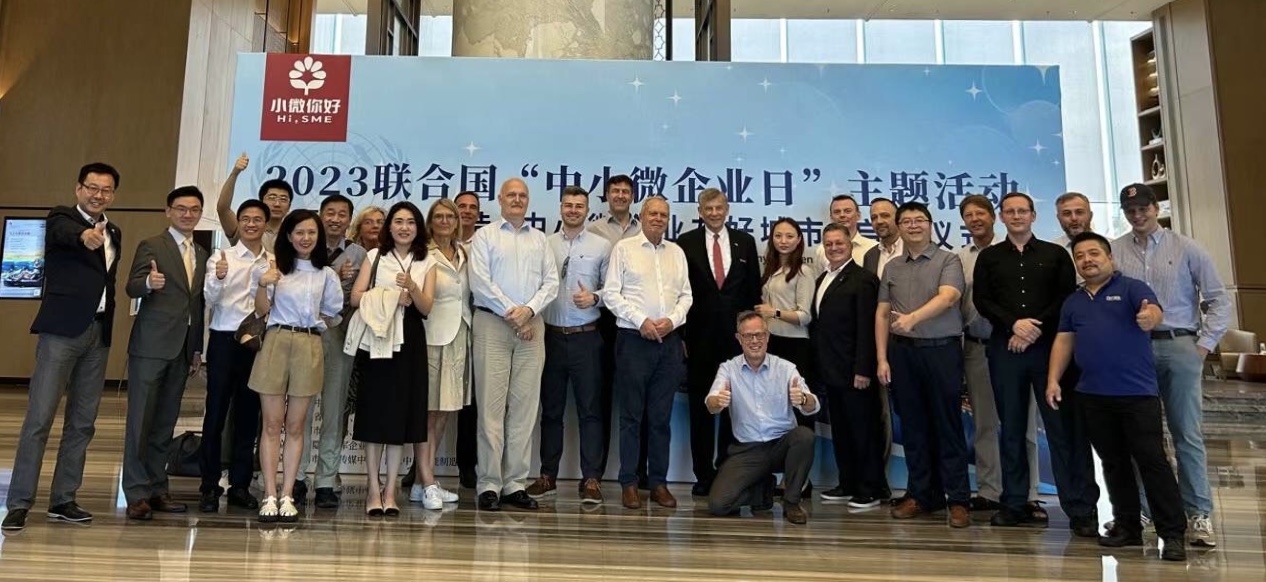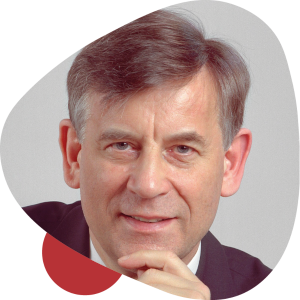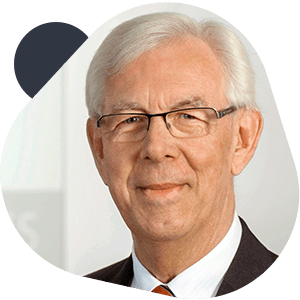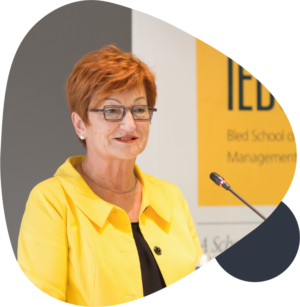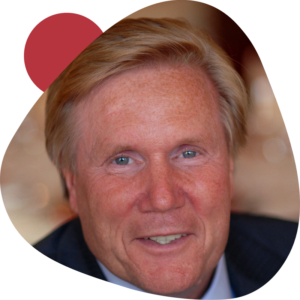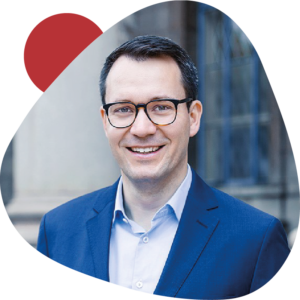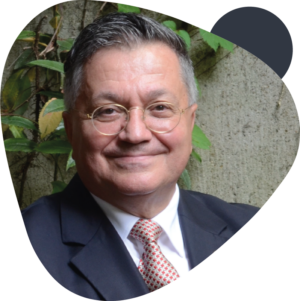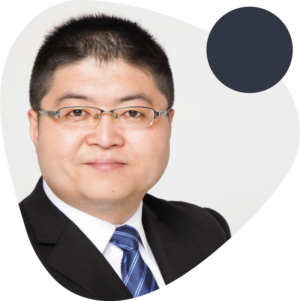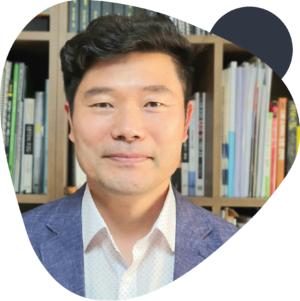Our Mission:
Strong Companies
The Association of German Hidden Champions (VDHC) sees itself as a member association, in particular for small and medium-sized enterprises (SMEs) that are hidden champions or want to become hidden champions.
As a catalyst, the VDHC e.V. offers support, in particular the provision of helpful contacts for the internationalization of SMEs. Another focus is the organization of topic-related national and international events, further training, seminars, study trips, matchmaking etc. to help SMEs find their way in international markets and operate successfully.
Initiator and founding member of the Association is Prof. Dr. Dr. h.c. mult. Hermann Simon (website), one of the most influential management thinkers in German-speaking countries and founder of the hidden champions theory.
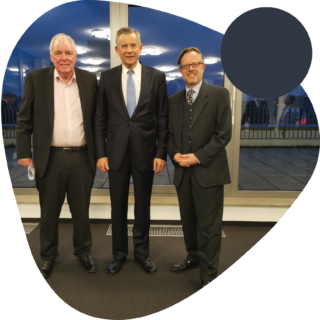
Our Competence
- The purpose of the association is to promote education, science and research as well as international understanding between Germany and other countries
- Member association, in particular for small and medium-sized enterprises (SMEs) that are hidden champions or want to become hidden champions
- Representing the interests of SMEs in the process of globalization
- Cosmopolitanism combined with intercultural competence
- Spreading of know-how and opportunities to implement the “Hidden Champions” corporate strategy
- Popularization of Hermann Simon's hidden champion strategy in the target group (SMEs)
- Intensification of globalization in compliance with the principles of fairness and equality
- Economic, political and social action “at eye level” in an international context
- Supporting SMEs to find their way in international markets (focus on China) and to operate successfully
We offer
International discussion panels
The Association of German Hidden Champions organizes prominent discussion panels on selected topics with experts from business, politics and science. Appropriate expert audiences are invited so that an intensive, target group-oriented exchange between the participants can take place.
The VDHC discussion panels are organized jointly with international partners from the media, business, science and politics.
VDHC members can use this event format to present themselves and their companies in a topic- and target group-oriented manner.
Congresses and Roundups
The VDHC regularly invites its members to high-profile, target group-specific congresses and roundups.
Planned for 2024 include:
- VDHC China trip of German Business with Prof. Dr. Simon
- Hidden Champions in conversation (monthly lifestreams with experts and hidden champions)
- VDHC partners introduce themselves
- VDHC Partner Seminars “Hidden Champions – Learning from the Best in Theory and Practice”.
- Entrepreneur / delegation trips to Germany & European destinations
- Audio project “Success stories of German Hidden Champions
- Advanced training seminars for entrepreneurs (International)
- Cooperation events with partners
- German-Chinese Automotive Congress
- German Health Industry Roundup
These events are attended by important representatives from business and politics. Internationally renowned speakers and the opportunity to network directly with entrepreneurs, hidden champions (and those who want to become one), decision-makers, etc. from all over the world make these events real highlights.
Business trips with hidden champions
Together with Prof. Dr. Hermann Simon, organized as a cooperation event by the VDHC with local partners, you will meet Hidden Champions in different countries and cities in Europe, Asia and Africa for an intensive mutual exchange. During these trips, you have the exclusive opportunity to present your company to potential partners as well as decision-makers from business and politics on site in targeted matchmaking sessions.
Webinars
Members of the VDHC benefit from online and hybrid events
- with experts from different industries
- on selected topics (medical technology, artificial intelligence, Industry 4.0, energy technology, electrical and building technology, mechanical engineering, business management, etc.).
In addition, the VDHC offers:
- Executives of medium-sized companies excellent continuing education, expertise, contacts, etc. through the association; specifically on topics that are of key importance to German SMEs, such as innovation, digitalization, and corporate governance
- Provision of highly professional information (for SME globalization)
- Support in providing helpful contacts for the internationalization of SMEs
- Further training measures for business and government delegations (incl. company visits)
- Heavily discounted access to the Springer Professional knowledge database
Founder of the Hidden Champions Theory
Hermann Simon
VDHC Board
Dieter Böning
Dieter Böning was, among other things, one of the founding member of VDHC e.V. as well as the managing director of several SMEs such as MORIS Deutschland GmbH, HS Business School GmbH and Konsens Institut GmbH. He has been volunteering in several China associations for many years.
Georg Türk
Hans-Joachim Sauthoff
Competence Board
Danica Purg
Engelbert Westkämper
Special Afrika
Bienvenue Angui
|- Member of the expert panel for African issues at the international business council: Expertengremium - Internationaler Wirtschaftsrat (international-business-council.com)
|- Member of the expert committee for African topics at logistic-natives e.V.
|- Head of the Advisory Board of GreenTec Capital Africa Foundation (among others Dr. Bärbel Kofler, Parliamentary State Secretary at the Federal Ministry for Economic Cooperation and Development and Tomi Davies, a well-known Nigerian-British investor, speaker, author, entrepreneur, philanthropist and advisor to technology companies.
Christian Lindfeld
Special Energy/Environment
Jan Ackermann
Christian Suchan
Special China/South-East Asia
Savas Tümis
WANG Yaozhen
01 Name und Sitz
Der Verein führt den Namen „Verband Deutscher Hidden Champions“.
Er soll in das Vereinsregister eingetragen werden und trägt dann den Zusatz “e.V.”
Der Sitz des Vereins ist in Düsseldorf.
02 Geschäftsjahr
Das Geschäftsjahr ist das Kalenderjahr.
03 Zweck des Vereins
Der Verein verfolgt ausschließlich und unmittelbar – gemeinnützige Zwecke im Sinne des Abschnitts “Steuerbegünstigte Zwecke” der Abgabenordnung.
Zweck des Vereins ist die Förderung der Bildung, der Wissenschaft und Forschung sowie der Völkerverständigung zwischen Deutschland und anderen Ländern.
Der Satzungszweck wird verwirklicht insbesondere durch
- die Durchführung wissenschaftlicher, auch gesellschaftlicher Veranstaltungen, die dem Informationsaustausch über die Wirtschaft, die Geschichte und die Kultur Deutschlands und anderer Länder dienen;
- die Ermöglichung des Informations- und Erfahrungsaustausches;
- die Sammlung von Informationsmaterial sowie die Herausgabe von Veröffentlichungen;
- den Aufbau, die Vertiefung und die Pflege der Beziehungen zu anderen Ländern;
- die Förderung der Bildung durch Aus- und Weiterbildungsmaßnahmen;
- die Förderung der wissenschaftlichen Forschung und akademischen Zusammenarbeit.
04 Selbstlose Tätigkeit
Der Verein ist selbstlos tätig; er verfolgt nicht in erster Linie eigenwirtschaftliche Zwecke.
05 Mittelverwendung
Mittel des Vereins dürfen nur für die satzungsmäßigen Zwecke verwendet werden. Die Mitglieder erhalten keine Zuwendungen aus Mitteln des Vereins.
Es darf keine Person durch Ausgaben, die dem Zweck der Körperschaft fremd sind, oder durch unverhältnismäßig hohe Vergütungen begünstigt werden.
06 Erwerb der Mitgliedschaft
Vereinsmitglieder können natürliche Personen oder juristische Personen werden.
Der Aufnahmeantrag ist schriftlich zu stellen.
Über den Aufnahmeantrag entscheidet der Vorstand.
Gegen die Ablehnung, die keiner Begründung bedarf, steht dem/der Bewerber/in die Berufung an die Mitgliederversammlung zu, welche dann endgültig entscheidet.
07 Beendigung der Mitgliedschaft
Die Mitgliedschaft endet durch Austritt, Ausschluss, Tod oder Auflösung der juristischen Person.
Der Austritt erfolgt durch schriftliche Erklärung gegenüber einem vertretungsberechtigten Vorstandsmitglied. Die schriftliche Austrittserklärung muss mit einer Frist von einem Monat jeweils zum Ende des Geschäftsjahres gegenüber dem Vorstand erklärt werden.
Ein Ausschluss kann nur aus wichtigem Grund erfolgen. Wichtige Gründe sind insbesondere ein die Vereinsziele schädigendes Verhalten, die Verletzung satzungsmäßiger Pflichten oder Beitragsrückstände von mindestens einem Jahr. Über den Ausschluss entscheidet der Vorstand. Gegen den Ausschluss steht dem Mitglied die Berufung an die Mitgliederversammlung zu, die schriftlich binnen eines Monats an den Vorstand zu richten ist. Die Mitgliederversammlung entscheidet im Rahmen des Vereins endgültig. Dem Mitglied bleibt die Überprüfung der Maßnahme durch Anrufung der ordentlichen Gerichte vorbehalten. Die Anrufung eines ordentlichen Gerichts hat aufschiebende Wirkung bis zur Rechtskraft der gerichtlichen Entscheidung.
08 Beiträge
- Von den Mitgliedern werden Beiträge erhoben.
- Die Höhe der Beiträge und deren Fälligkeit bestimmt die Mitgliederversammlung.
- Für natürliche und juristische Personen werden unterschiedliche Beiträge festgelegt.
- Alle Mitglieder (persönliche und juristische Mitglieder; juristische Mitglieder im In- oder Ausland) sind beitragspflichtig – mit Ausnahme der Ehrenmitglieder.
- Für juristische Personen mit Sitz im Inland und im Ausland werden unterschiedliche Beiträge festgelegt.
- Ehrenmitglieder sind von der Zahlung eines Beitrages befreit.
- Der Vorstand kann Beiträge und Umlagen stunden.
- In den Untergliederungen des Vereins werden keine weiteren Beiträge erhoben.
- Die Mitgliederversammlung beschließt auf Vorschlag des Vorstandes über die Höhe von eventuellen Umlagen.
- Eine Stimmenmehrheit der Mitgliederversammlung ist bei 50 Prozent der abgegebenen gültigen Stimmen gegeben.
09 Organe des Vereins
Organe des Vereins sind
- die Mitgliederversammlung
- der Vorstand
- der Beirat
10 Mitgliederversammlung
Die Mitgliederversammlung ist das oberste Vereinsorgan. Zu ihren Aufgaben gehören insbesondere die Wahl und Abwahl des Vorstands, Entlastung des Vorstands, Entgegennahme der Berichte des Vorstandes, Wahl der Kassenprüfern/innen Festsetzung von Beiträgen und deren Fälligkeit, Beschlussfassung über die Änderung der Satzung, Beschlussfassung über die Auflösung des Vereins, Entscheidung über Aufnahme und Ausschluss von Mitgliedern in Berufungsfällen sowie weitere Aufgaben, soweit sich diese aus der Satzung oder nach dem Gesetz ergeben.
Im ersten Quartal eines jeden Geschäftsjahres findet eine ordentliche Mitgliederversammlung statt.
Der Vorstand ist zur Einberufung einer außerordentlichen Mitgliederversammlung verpflichtet, wenn mindestens ein Drittel der Mitglieder dies schriftlich unter Angabe von Gründen verlangt.
Die Mitgliederversammlung wird vom Vorstand unter Einhaltung einer Frist von einem Monat schriftlich unter Angabe der Tagesordnung einberufen. Die Frist beginnt mit dem auf die Absendung des Einladungsschreibens folgenden Tag. Das Einladungsschreiben gilt als den Mitgliedern zugegangen, wenn es an die letzte dem Verein bekannt gegebene Anschrift gerichtet war.
Die Tagesordnung ist zu ergänzen, wenn dies ein Mitglied bis spätestens eine Woche vor dem angesetzten Termin schriftlich beantragt. Die Ergänzung ist zu Beginn der Versammlung bekanntzumachen.
Anträge über die Abwahl des Vorstands, über die Änderung der Satzung und über die Auflösung des Vereins, die den Mitgliedern nicht bereits mit der Einladung zur Mitgliederversammlung zugegangen sind, können erst auf der nächsten Mitgliederversammlung beschlossen werden.
Die Mitgliederversammlung ist ohne Rücksicht auf die Zahl der erschienenen Mitglieder beschlussfähig.
Die Mitgliederversammlung wird von einem Vorstandsmitglied geleitet.
Zu Beginn der Mitgliederversammlung ist ein Schriftführer zu wählen.
Jedes Mitglied hat eine Stimme. Das Stimmrecht kann nur persönlich oder für ein juristisches Mitglied unter Vorlage einer schriftlichen Vollmacht ausgeübt werden.
Bei Abstimmungen entscheidet die einfache Mehrheit der abgegebenen Stimmen.
Satzungsänderungen und die Auflösung des Vereins können nur mit einer Mehrheit von 2/3 der anwesenden Mitglieder beschlossen werden.
Stimmenthaltungen und ungültige Stimmen bleiben außer Betracht.
Über die Beschlüsse der Mitgliederversammlung ist ein Protokoll anzufertigen, das vom Versammlungsleiter und dem Schriftführer zu unterzeichnen ist.
11 Vorstand und Beirat
Der Vorstand im Sinn des § 26 BGB besteht aus dem/der 1. Vorsitzenden, dem/der Stellvertretenden Vorsitzenden und dem/der Kassierer/in. Sie vertreten den Verein gerichtlich und außergerichtlich. Zwei Vorstandsmitglieder vertreten gemeinsam.
Der Vorstand wird von der Mitgliederversammlung auf die Dauer von fünf Jahren gewählt.
Vorstandsmitglieder können nur Mitglieder des Vereins werden.
Eine Wiederwahl ist zulässig.
Der Vorstand bleibt solange im Amt, bis ein neuer Vorstand gewählt ist.
Bei Beendigung der Mitgliedschaft im Verein endet auch das Amt als Vorstand.
Jedes Vorstandsmitglied ist von den Beschränkungen des § 181 BGB befreit.
Der Vorstand kann die Mitglieder des Beirates berufen. Der Beirat berät den Vorstand bei allen Aktivitäten und strategischen Entscheidungen. Der Beirat hat eine vorwiegend beratende Funktion, außer den in § 13 und 14 genannten Funktionen. Sitzungen des Beirates werden durch den Vorstand einberufen.
12 Rechnungsprüfung
Die Mitgliederversammlung wählt für die Dauer von einem Jahr eine/n oder mehrere Rechnungsprüfer/in.
Diese/r darf /dürfen nicht Mitglied(er) des Vorstands sein.
Eine Wiederwahl ist zulässig.
13 Untergliederungen, Beauftragte
Der Verein kann Untergliederungen (Fachgruppen, Regionen etc.) errichten, deren Vorsitzenden berufen sowie Beauftragte (Fachsprecher, Regionalvorsitzende, Botschafter etc.) ernennen. Die Bestimmungen hierüber erlässt der Vorstand. Die Vorsitzenden der Untergliederungen und die Beauftragten berichten dem Vorstand und dem Beirat.
14 Jahresabschluss und Rechnungsprüfung
Der Vorstand hat den Jahresabschluss des Vereins unverzüglich, spätestens binnen drei Monaten nach Ende des Geschäftsjahres aufzustellen. Er wird durch den oder die von der
Mitgliederversammlung gewählten Rechnungsprüfer geprüft und dem Beirat zur Genehmigung sowie der nächsten ordentlichen Mitgliederversammlung zur Feststellung vorgelegt.
15 Auflösung der Vereinigung, Anfallberechtigung
- Über die Auflösung des Vereins beschließt die Mitgliederversammlung mit der in S 8 Abs. 10 festgelegten Stimmenmehrheit. Die Mitgliederversammlung, in der über die Auflösung des Vereins beschlossen werden soll, ist nur beschlussfähig, wenn mindestens die Hälfte der stimmberechtigten Mitglieder anwesend oder vertreten ist. Ist diese Mitgliederversammlung nicht beschlussfähig, so ist innerhalb eines Monats eine zweite Mitgliederversammlung einzuberufen, die ohne Rücksicht auf die Zahl der erschienen oder vertretenen Mitglieder beschlussfähig ist, sofern in der Einladung zur neuen Mitgliederversammlung hierauf hingewiesen worden ist.
- Sofern die letzte Mitgliederversammlung nichts anderes beschließt, wird der Vorsitzende des Vorstandes mit Wirksamwerden des Auflösungsbeschlusses alleinvertretungsberechtigter Liquidator.
- Bei Auflösung oder Aufhebung der Körperschaft oder bei Wegfall der steuerbegünstigten Zwecke fällt das Vermögen der Körperschaft an eine Person des öffentlichen Rechts oder eine andere steuerbegünstigte Körperschaft zwecks Verwendung für die Förderung der Völkerverständigung zwischen Deutschland und anderen Ländern und/oder für die Förderung von Bildung, Wissenschaft und/oder Forschung.
- Die Mitglieder haben bei Auflösung des Vereins kein Anrecht auf das Vereinsvermögen.
Düsseldorf, den 07.06.2019
